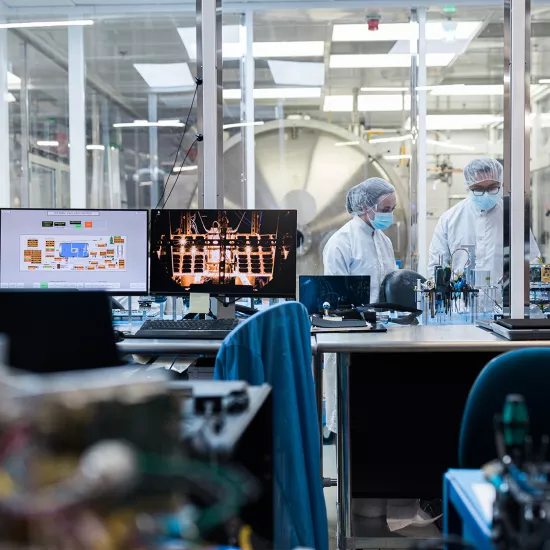Two UTM faculty members named U of T Distinguished Professor

U of T Mississauga political science professor Steven Bernstein and economics professor Philip Oreopoulos have each been named University of Toronto Distinguished Professors.
The purpose of the distinguished professor program is to advance and recognize individuals with highly distinguished accomplishments who display exceptional promise, maintain an extraordinary level of activity in their research and scholarly work, and have achieved pre-eminence in their field. The five-year program runs until June 30, 2025.
From critically assessing international sustainability efforts to improving academic outcomes with the use of technology, these UTM professors are working to help solve broader societal challenges.
Steven Bernstein
Our practices around sustainability now are crucial given the very short time frame in which we can take action to avert dangerous climate change, says Bernstein, explaining big crises around climate change, biodiversity, and mass extinction are already happening. “The science is there.”

A professor in UTM’s Department of Political Science and co-director of the Environmental Governance Lab at the Munk School of Global Affairs and Public Policy, Bernstein is currently wrapping up a project on the politics of decarbonization with colleague Matthew Hoffman and writing a book based on the insights and general patterns that project revealed.
Bernstein and his collaborators looked at decarbonization initiatives at multiple government levels and within the corporate sector, investigating why some initiatives grow and are more durable.
Now he is turning his attention to investigate why coherent international policies have failed or succeeded over the years.
The idea of sustainability became popular around the time the 1992 Earth Summit in Rio was taking place. That also happened to be when Bernstein was pursuing his PhD.
He notes the early research revealed that issues were being dealt with in a way that reinforced dominant economic interests, with environmental concerns subordinate to economic thinking and interests.
“It constrained the kinds of action we now know were needed for those severe problems,” he says.
Bernstein is now examining various attempts by international institutions to create coherent international policies and practices that are consistent with pursuing social, economic and environmental goals without subordinating one for another.
The most concrete, current example is the UN’s 17 sustainable development goals, which are framed in a way that takes into account the underlying notion of sustainability, he says. For example, efforts to reduce poverty shouldn’t erode gains made in women’s rights and gender equality, while goals around energy access should be consistent with addressing climate change.
“Often, nationally and internationally, it’s very difficult to do that because governments or particular parts of governments, or the international community work in silos,” Bernstein says.
By examining these larger international processes and what has been done to create policies and practices that are more coherent and work together to solve global challenges, Bernstein aims to provide lessons about what works and what doesn’t.
“Ultimately I hope it helps people critically assess things and inform policy to improve processes in the future,” Bernstein says.
Philip Oreopoulos
A labour economist by trade who has written on a number of topics, including discrimination of immigrants in Canada, and the consequences of graduating during a recession, Oreopolous is continuing his focus on education and investigating whether computer-assisted learning that simulates one-on-one tutoring can improve academic outcomes.

Oreopoulos, who has been teaching at UTM since 2002, recently finished a review of about 100 randomized controlled trials that examined the effectiveness of tutoring over 20-40 years.
“The results of those studies are all remarkably consistent,” he says, explaining supplementing classroom instruction with more one-on-one instruction seems to be one of the most effective ways of improving math or English outcomes.
“Of course, it’s a very expensive program to run,” he adds, noting not all class sizes can be one.
That’s where computer-assisted learning, or CAL, could play a role. By simulating the kind of help tutoring offers, Oreopoulos says CAL could provide students with guided exercises and instruction on a number of topics at their own pace. Through the program, students can get extra help and feedback. And unlike classroom instruction, where everyone goes at the same pace and students move to the next topic regardless of whether they received an A+ or C-, with CAL students don’t move to the next topic until they’re proficient.
“There’s a much greater emphasis on mastery,” Oreopoulos says. “I really like that approach.”
Based on his recent literature review, Oreopoulos has designed a program that essentially leverages Khan Academy, a nonprofit CAL system, that could be used as a graded homework tool for teachers. He is trying to establish a randomized trial in a classroom, which he says has never been done before.
His motivation, he says, is to “move the dial in an important way.” There remains a large gap in academic achievement between children from high and low socioeconomic status despite efforts to change that over the last 30-40 years, Oreopoulos explains. “It’s a little bit discouraging.”
“There’s more and more potential for technology to play a role,” he continues, noting high touch personalized programs are expensive but they have a high return in improving outcomes, so they may be worth it.



